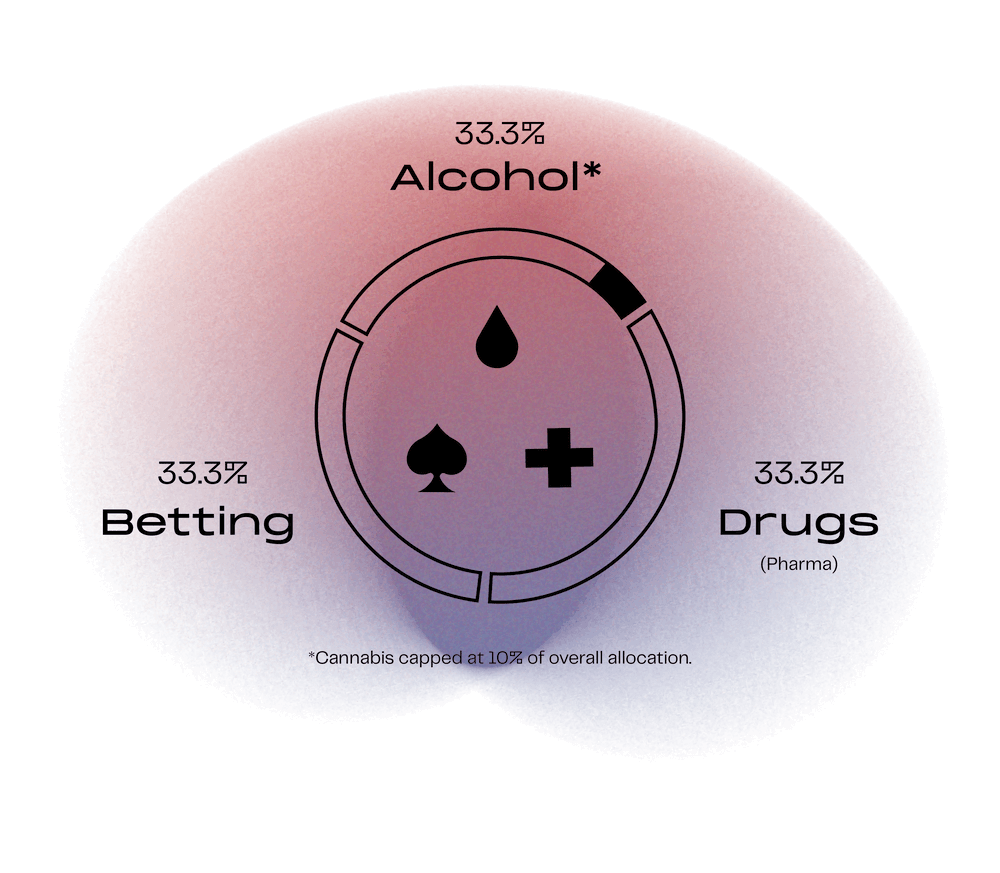Important Disclosures:
Fund holdings and sector allocations are subject to change at any time and should not be considered recommendations to buy or sell any security.
The Funds’ investment objectives, risks, charges, and expenses must be considered carefully before investing. The prospectus contain this and other important information about the investment company. Please read carefully before investing. A hard copy of the prospectuses can be requested by calling 866.251.6920. or by clicking the link here. Download Prospectus
Investing involves risk. Principal loss is possible. As an ETF, BAD (the “Fund”) may trade at a premium or discount to NAV. Shares of any ETF are bought and sold at market price (not NAV) and are not individually redeemed from the Fund. Brokerage commissions will reduce returns. The Fund is not actively managed and would not sell a security due to current or projected under performance unless that security is removed from the Index or is required upon a reconstitution of the Index. A portfolio concentrated in a single industry or country, may be subject to a higher degree of risk. The Fund is considered to be non-diversified, so it may invest more of its assets in the securities of a single issuer or a smaller number of issuers. Small and mid-cap companies are subject to greater and more unpredictable price changes than securities of large-cap companies.
The Fund is a recently organized investment company with no operating history. As a result, prospective investors have no track record or history on which to base their investment decision.
Alcohol, betting, pharmaceutical, and cannabis companies are subject to numerous risks. These industries face intense competition including from participants performing illegal activities or unregulated companies.
Alcohol companies in particularly are subject to demographic and product trends, changing consumer preferences, nutritional and health-related concerns, competitive pricing, marketing campaigns, and environmental factors. Betting, Pharmaceutical and Cannabis companies are particularly affected by increasing regulatory constraints and the costs of complying with such constraints.
The pharmaceutical companies can be significantly affected by government approval of products and services, government regulation and reimbursement rates, pricing pressure (including price discounting), limited product lines, pricing pressure (including price discounting), limited product lines, patent expirations, and intense competition. The costs associated with developing new drugs can be significant, and the results are unpredictable. Newly developed drugs may be susceptible to product obsolescence due to intense competition from new products and less costly generic products. . Pharmaceutical companies, including psychedelic treatment companies, are subject to regulation by, and the restrictions of, the Food and Drug Administration (“FDA”), the U.S. Environmental Protection Agency (“EPA”), state and local governments, and foreign regulatory authorities.
Cannabis-related companies are subject to various laws and regulations that may differ at the state/local and federal level. These laws and regulations may (i) significantly affect a cannabis-related company’s ability to secure financing, (ii) impact the market for marijuana industry sales and services, and (iii) set limitations on marijuana use, production, transportation, and storage. Cannabis-related companies may also be required to secure permits and authorizations from government agencies to cultivate or research marijuana. In addition, cannabis-related companies are subject to the risks associated with the greater agricultural industry, including changes to or trends that affect commodity prices, labor costs, weather conditions, and laws and regulations related to environmental protection, health and safety. Cannabis-related companies may also be subject to risks associated with the biotechnology and pharmaceutical industries. These risks include increased government regulation, the use and enforcement of intellectual property rights and patents, technological change and obsolescence, product liability lawsuits, and the risk that research and development may not necessarily lead to commercially successful products.
The BAD ETF is new with a limited operating history.
The BAD ETF is the first ETF to emphasize securities whose products and services are predominantly tied to the betting, alcohol and pharmaceutical industries. The fund does this by tracking the EQM BAD Index. The Fund attempts to invest all, or substantially all, of its assets in the component securities that make up the Index.
Total return represents changes to the NAV and accounts for distributions from the fund.
Median 30 Day Spread is a calculation of Fund’s median bid-ask spread, expressed as a percentage rounded to the nearest hundredth, computed by: identifying the Fund’s national best bid and national best offer as of the end of each 10 second interval during each trading day of the last 30 calendar days; dividing the difference between each such bid and offer by the midpoint of the national best bid and national best offer; and identifying the median of those values.
Diversification does not ensure a profit nor protect against loss in a declining market.
Commissions may be charged on trades.
BAD is distributed by Foreside Fund Services, LLC.










